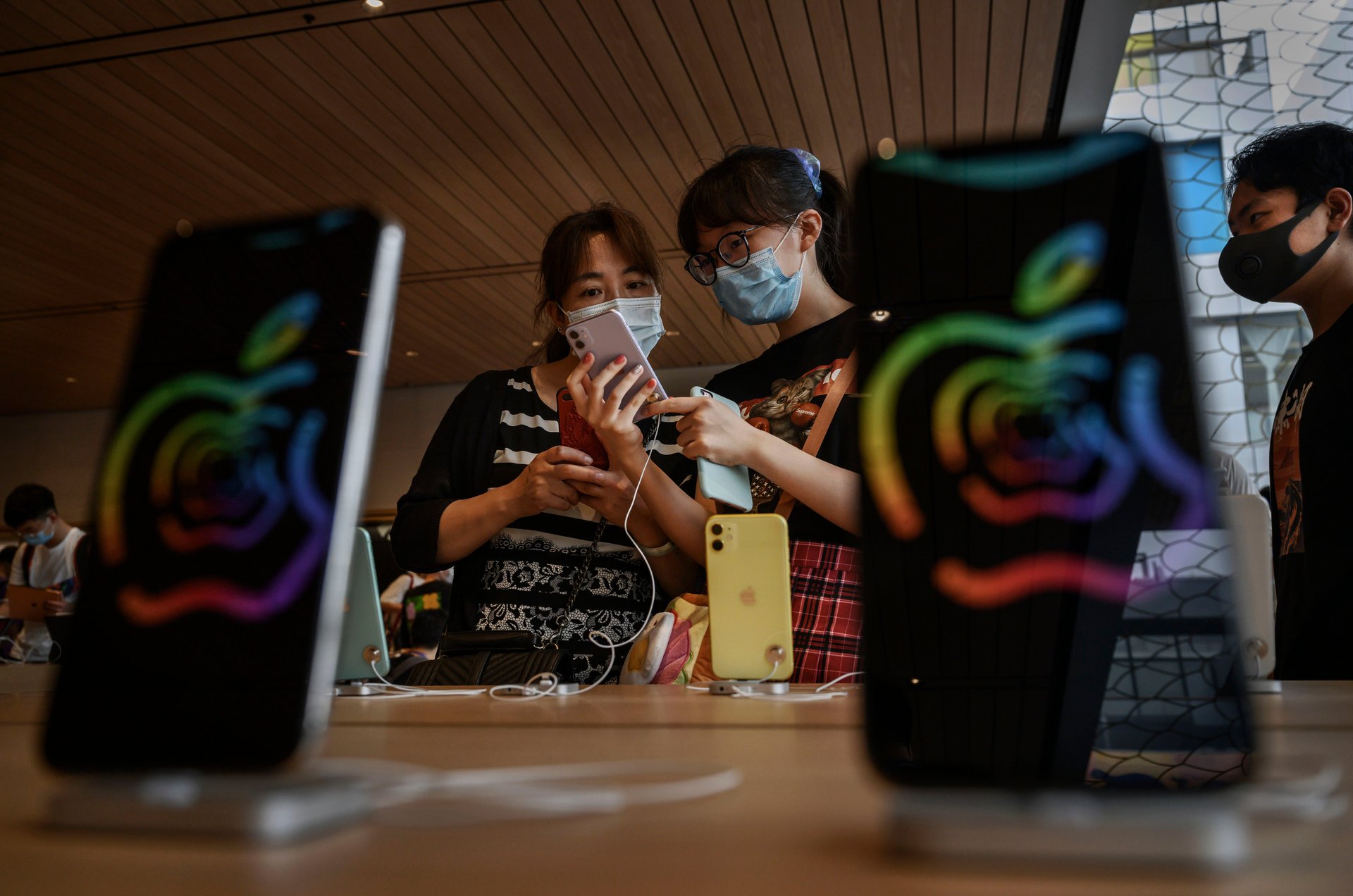China is proposing a two-hour limit on children's smartphone use
The draft law sent shares of Chinese tech companies down as they grapple with even stricter controls

The Cyberspace Administration of China (CAC) proposed a rule that would limit smartphone use for people under the age of 18 on Wednesday (August 2), the latest step by Chinese regulators to curb young people’s internet use.
Suggested Reading
The proposed law would mandate the creation of a “minor mode” on all smartphones that would limit when children can access the internet. China has invested considerable resources in digital surveillance, with the CAC passing extensive laws to monitor and limit internet access. Last year, the Freedom House ranked China the world’s worst country for digital freedom for the eighth year in a row.
Related Content
The proposed rules would effectively ban all smartphone use for children between 10pm and 6am, as well as limit screen time based on staggered age brackets. Children under the age of 8 would be limited to 40 minutes of screen time a day, children between 8 and 16 years old would be limited to one hour, and teenagers between 16 and 18 would get two hours.
The CAC clarified that exemptions would be made for educational and emergency services. The law will open for public consultation before being voted on by the Chinese Communist Party (CCP).
How young people use the internet in China, by the digits:
93%: Share of Chinese minors online, as of 2019. For reference, 97% of American teens use the internet.
24 million: Number of children estimated to have a clinical internet addiction in China.
3 hours: Weekly limit for Chinese children playing video games.
What does this mean for Chinese tech companies?
Stock prices for Chinese tech companies fell on the news of the CAC proposal, with Alibaba falling 5% and NetEase falling 3% at 2:30pm in New York, while Tencent and Baidu both fell 4%.
Government hostility toward technology aimed a young people is nothing new for Chinese tech firms. In 2021, the CCP passed the world’s strongest limits on video game use for minors, with strict time limits on online gaming to counter what the country sees as a growing internet addiction.
The limits also banned the release of new video game titles until mid-2022, causing Chinese video game sales to shrink last year for the first time.
In total, the video game ban is estimated to have lost China’s biggest tech firms more than $1 trillion. Now, with Huawei estimated to be one of the biggest smartphone manufacturers in the world, it remains to be seen how the CAC’s latest proposal will affect China’s struggling tech industry.
Related stories:
🇨🇳 China’s reputation as a leading economic power is fast eroding